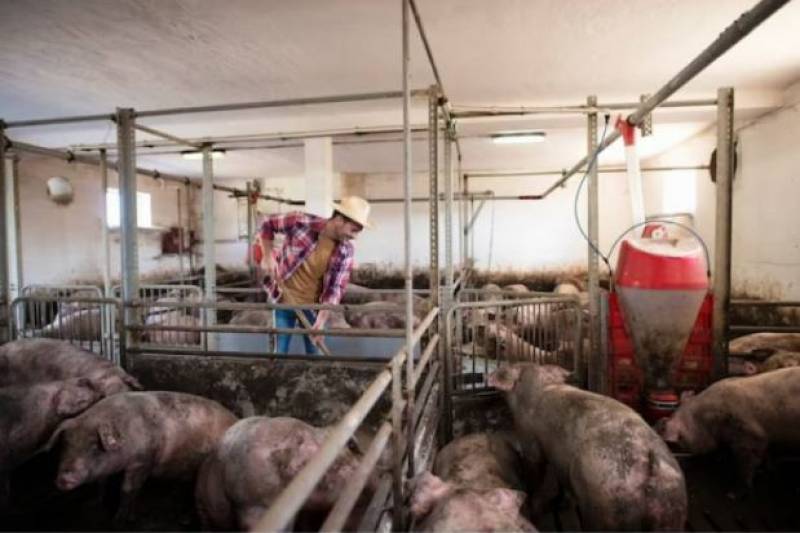Date Published: 11/12/2024
Blanket ban on expanding polluting pig farms in the Region of Murcia
To reduce nitrate pollution, the Region of Murcia will restrict water supplies so that no new pig farms can be built
The Region of Murcia is embarking on an unprecedented
battle against nitrate pollution, with stringent measures set to reshape its agricultural and livestock sectors.
The Segura Hydrographic Confederation (CHS) is introducing the 'NitraSegura' strategy, a bold initiative designed to curb nitrate contamination and preserve the Region’s fragile water resources.
Under these new regulations, the CHS will effectively halt
the growth of intensive livestock farming by banning the expansion of existing pig farms and refusing authorisation for the building of new ones. It will do so by denying extra water allocations to farms.
These measures against nitrate pollution caused by big farms are the most extreme ever seen in the Region of Murcia.
The CHS has declared that no new water concessions or increases in demand for existing livestock farms will be approved, even for municipal supply systems supporting farms. This impacts towns like
Fuente Álamo, where the majority of livestock rely on local water supplies. Even desalinated water will be restricted, with allocations capped at current levels.
Additionally, changes to water usage permits, opening new wells or reallocating water for livestock in areas vulnerable to nitrate pollution will be prohibited. These measures aim to safeguard aquifers and other water resources already under threat.
The 'NitraSegura' strategy, however, will standardise these efforts across the entire Region, leaving no room for exceptions.
The CHS’s new Nitrogen Pressure Indicator map will guide these actions, pinpointing areas most affected by nitrate pollution. This detailed tool evaluates factors like nitrogen surpluses, livestock density and the vulnerability of aquifers to determine where restrictions are most needed.
The CHS report paints a grim picture for the future of livestock expansion in Murcia. “The capacity of the Segura basin to accommodate activities that increase nitrate pressure is very limited, or practically non-existent,” the document states. Echoing measures already enforced in the Mar Menor basin, these restrictions are expected to leave the livestock sector with little room to grow.
The areas most affected by these changes include livestock-heavy municipalities such as
Cartagena, Lorca and
Totana, where the southern and western parts of the Segura basin bear the brunt of nitrate pressure. The new measures will also require farmers to upgrade their slurry ponds with waterproofing and leak detection systems, ensuring stricter environmental compliance.
The CHS’s actions are driven by both European and national directives. Following Spain’s failure to meet the EU nitrates directive, which led to a conviction by the European Court of Justice, the European Commission has demanded additional measures. This has given the CHS the authority to impose sweeping restrictions, backed by a 2022 royal decree on water protection.
Image: Archive
article_detail

|












